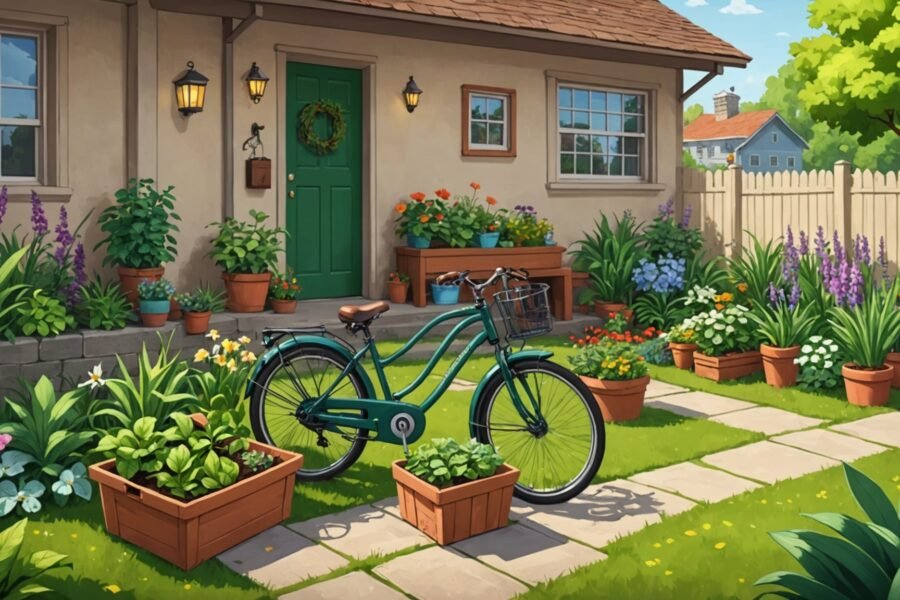
Reducing waste is one of the simplest and most effective ways to protect our environment. Every day, we make choices that impact the planet, from what we buy to how we dispose of things. By following practical waste reduction tips, you can help conserve resources, reduce pollution, and create a healthier world for future generations. Whether you’re just starting your eco-journey or looking to level up your green habits, these tips will guide you toward a more sustainable lifestyle.
Why Waste Reduction Matters
Waste doesn’t just disappear when we throw it away. Landfills overflow, oceans fill with plastic, and greenhouse gases rise from decomposing trash. By reducing waste, we:
- Conserve natural resources
- Lower greenhouse gas emissions
- Protect wildlife and ecosystems
- Save money and energy
Small changes in our daily routines can lead to significant positive impacts. Let’s explore 10 easy waste reduction tips that anyone can start today!
1. Embrace the 3 R’s: Reduce, Reuse, Recycle
The foundation of all waste reduction tips is the 3 R’s: Reduce, Reuse, and Recycle. Start by reducing what you consume, reusing items whenever possible, and recycling materials correctly.Benefits:
- Cuts down on landfill waste
- Saves energy and resources
- Encourages mindful consumption
Examples:
- Buy only what you need
- Use reusable shopping bags and containers
- Sort recyclables according to local guidelines
For more on building green habits, check out Green Daily Habits.
2. Say No to Single-Use Plastics
Single-use plastics like straws, bags, and bottles are major contributors to pollution. Switching to reusable alternatives is one of the easiest waste reduction tips you can adopt.Benefits:
- Reduces plastic pollution in oceans and landfills
- Saves money over time
- Promotes a cleaner environment
Examples:
- Carry a stainless steel water bottle
- Use cloth bags for shopping
- Choose beeswax wraps instead of plastic wrap
Learn more about eco-friendly products at Eco-Friendly Products.
3. Compost Food Scraps
Food waste makes up a large portion of household trash. Composting turns kitchen scraps into nutrient-rich soil, reducing landfill waste and supporting your garden.Benefits:
- Decreases methane emissions from landfills
- Enriches soil naturally
- Reduces the need for chemical fertilizers
Examples:
- Collect fruit and vegetable peels, coffee grounds, and eggshells
- Set up a backyard compost bin or use a countertop composter
- Use finished compost in your garden or houseplants
For more sustainable home ideas, visit Sustainable Home Solutions.
4. Buy in Bulk and Choose Minimal Packaging
Packaging waste adds up quickly. Buying in bulk and selecting products with minimal or recyclable packaging are effective waste reduction tips.Benefits:
- Reduces packaging waste
- Often saves money
- Supports a zero-waste lifestyle
Examples:
- Shop at bulk food stores with your own containers
- Choose products packaged in glass, paper, or cardboard
- Avoid individually wrapped snacks
5. Opt for Reusable Over Disposable
Switching from disposable to reusable items is a simple way to cut down on waste. This habit is easy to adopt and makes a noticeable difference.Benefits:
- Reduces landfill waste
- Saves money in the long run
- Encourages sustainable habits
Examples:
- Use cloth napkins instead of paper
- Replace paper towels with washable rags
- Choose a reusable coffee cup for your daily brew
6. Repair, Don’t Replace
Before tossing broken items, consider repairing them. This extends the life of your belongings and keeps waste out of landfills.Benefits:
- Saves money by avoiding new purchases
- Reduces demand for new resources
- Fosters creativity and self-sufficiency
Examples:
- Mend torn clothing
- Fix appliances or electronics
- Patch up furniture or home goods
7. Donate or Sell Unwanted Items
Decluttering doesn’t have to mean throwing things away. Donating or selling items gives them a second life and helps others.Benefits:
- Reduces landfill waste
- Supports your community
- Can earn you extra cash
Examples:
- Donate clothes, books, and toys to local charities
- Sell electronics or furniture online
- Host a garage sale
8. Plan Meals and Shop Smart
Food waste is a huge problem, but planning meals and shopping with a list can help. This is one of the most practical waste reduction tips for busy households.Benefits:
- Reduces food waste and saves money
- Encourages healthier eating habits
- Minimizes impulse purchases
Examples:
- Make a weekly meal plan
- Check your pantry before shopping
- Store leftovers properly for future meals
For more tips on sustainable living, see Eco-Friendly Living for Beginners.
9. Choose Eco-Friendly Products
Selecting products made from sustainable materials or those designed for reuse is a key part of waste reduction.Benefits:
- Supports ethical brands
- Reduces environmental impact
- Encourages innovation in green products
Examples:
- Buy bamboo toothbrushes instead of plastic
- Use refillable cleaning products
- Choose recycled paper goods
Explore more at Eco-Friendly Products.
10. Educate and Inspire Others
Sharing your waste reduction tips with friends, family, and your community multiplies your impact. Education is a powerful tool for change.Benefits:
- Builds a culture of sustainability
- Encourages collective action
- Spreads awareness about environmental issues
Examples:
- Start a recycling program at work or school
- Share tips on social media
- Organize a community clean-up event
For more inspiration, read Waste Reduction Tips.
Conclusion: Start Small, Make a Big Difference
Adopting these waste reduction tips doesn’t require a complete lifestyle overhaul. Start with one or two changes, and gradually build new habits. Every small step counts toward a greener, healthier planet. Remember, your actions inspire others to join the movement!Ready to take your eco-journey further? Explore these helpful guides:
- Water Conservation Tips
- Eco-Friendly Travel Tips
- Green Daily Habits
- Sustainable Home Solutions
- Eco-Friendly Living for Beginners
- Waste Reduction Tips
- Eco-Friendly Products
Together, we can make waste reduction a natural part of everyday life. Start today—your planet will thank you!
External Resources:
